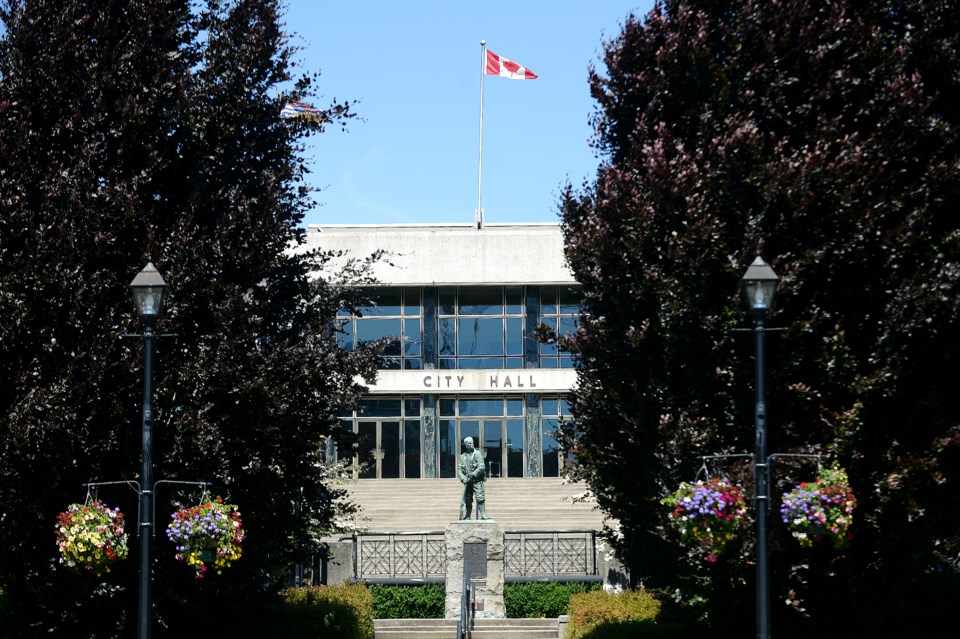Members of New Westminster city council will “dig deeper” into various issues through several task forces.
At its recent inaugural meeting, city council approved the formation of a new local economy task force, which will help implement items in the city’s recently approved economic development strategy and guide the work of the Intelligent City initiative. It joins several existing council/staff committees and taskforces: affordable housing task force; Canada Games Pool and Centennial Community Centre task force; land use and planning committee; major projects task force; riverfront and public realm task force; and transportation task force.
“I find the task forces are helpful to recognize in our regular council meetings, we don’t always have the opportunities to dig deeper into very specific topics, given the heavy agendas that we do have,” said Mayor Jonathan Cote. “It does give the opportunity for there to be a subcommittee of council to really kind of work a little bit deeper and spend more time on very specific topics, and then ultimately make recommendations back to council.”
After being elected mayor in 2014, Cote created task forces to tackle transportation, housing affordability, public engagement and the development of an economic health-care cluster in Sapperton. Along with Cote, two council members sit on each of the task forces.
“Some of the task forces have completed their work – the public engagement task force did its work, produced a final report which we are now working off of,” he said. “Other task forces, like affordable housing and transportation, we recognize those are going to be longstanding, ongoing issues for the city and will have to continue to do the work and continue serving. Those have been in place since the beginning and will continue to serve.”
Cote said the Canada Games Pool task force was created midway through the last term as that project started to take shape. As it moves into the construction phase, he said it will likely wind up over the next year or two.
While citizens volunteer on the city’s advisory committees, commission, board and panels, most of its task forces are comprised of council and senior city staff.
Cote said it’s similar to the way that Metro Vancouver functions, where the mayors across the region serve on the board but other representatives serve on regional subcommittees that “dig down” on specific issues and have in-depth discussions on those issues.
“I think definitely the work of the task force needs to come back to council, but I think in terms of the efficiency of how we work as a council, it’s not always possible to have the in-depth workshops and I think it’s good to actually have different councillors that are able to specialize in certain areas and take on certain areas,” he said. “Ultimately, any of the direction that comes from any of this work has to feed back to council, because the work we do and the decisions we make ultimately have to be decisions for the full council. I think the model has actually worked very well.”
According to Cote, most of the task forces meet monthly. Like council meetings, he said, they have an open and closed component, but the public is welcome to attend the open portions of the meetings.
The Record searched the city’s website for meeting times, agendas and minutes for the various task forces but could only find details about the land use and planning committee.
City clerk Jacque Killawee said the task forces are administered at the department level with little interaction with her department.
“I know that the meeting times, and agendas are posted in advance of the meeting on the bulletin board at city hall,” she said in an email to the Record. “The clerk’s department will coordinate with the departments over the next few months to move this notification onto the website.”



